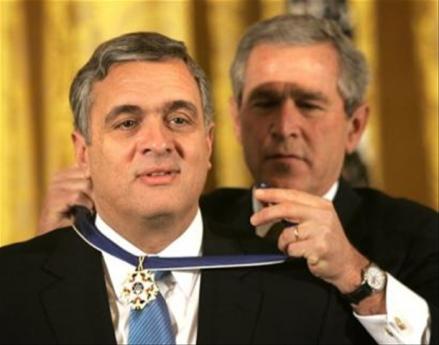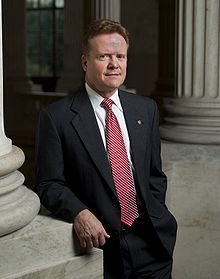Last week
a Thai court acquitted Victor Bout on charges of arms trafficking to
terrorists, ruling against his extradition to the United States. The case is presently under appeal.
Because the case of the so-called "merchant of death" has the potential to
adversely impact US-Russian relations, Jotman posed six questions to Sanjuro, hoping to get a better idea of what Viktor Bout means to the Russian people and their leaders.
Russian JOTMAN.COM contributor Sanjuro is a keen observer of the murky world of Russian politics -- particularly how developments in Moscow impact
the farthest reaches of the Russian empire. Sanjuro has been following the detention and trial of
Viktor Bout since his arrest in Bangkok in March 2008. In October 2008 Sanjuro
translated a rare interview with Viktor Bout into English.
1. Do you believe Bout is well connected with the Russian power-brokers and high society? He is probably not well connected. Viktor Bout was rumoured to be from the GRU community (army intelligence), that was a rival to KGB (secret police). GRU people were briefly in favor in the late Soviet period and in the Yeltsin's times, but were mostly sidelined after Vladimir Putin, an ex-KGB, came to power. One of the evidences of that came when the GRU could not help its former Chechen veterans of the GRU unit "Vostok" (see the sad story of The Brothers Yamadayev) persecuted and killed allegedly under orders from Ramzan Kadyrov the Chechen Supremo Warlord. Under the new proposed intelligence reform GRU is expected to be signficantly downsized and will basically be stripped off of some its functions like Spec Ops.
If Bout was indeed from the GRU community, then his patrons and supporters have likely been sidelined and demoted in the Russian power struggle. It is more likely that he left the community in the 1990s, after acquiring some of the aircraft assets and since then was operating on his own. Theoretically, he could be in a "sleeper" mode, but I feel that most bright people left that system when the underlying ideology fell, and they all left to seek other fortunes.
2. How likely is it that Viktor Bout is a Russian agent? Just how expendable is he? I assume he doesn't matter to Moscow as an asset, but that he matters a lot more to Moscow as a symbol. Do you agree?I don't think he mattered a whole lot to Moscow as an agent or a symbol. His importance as an agent or symbol was probably blown out of proportion by the media, just because the story would sound sensational ("From the depth of the Soviet Intelligence! The Merchant! Of Death! - now a major Hollywood movie").
3. How angry do think Moscow was at his capture? From other things you have written, it would seem the Russian people don't care much about what happens outside their region, but is that true in this case? Does Russian public opinion matter in relation to Bout? Is he a folk-hero in Russia?Bout was literally unknown in Russia until his capture and still largely remains unknown to the most of the common Russians. A mafiozo called Vyacheslav Ivankov (aka Yaponchik - "Litte Japanese"), captured in the US and extradited to Russia, was much more famous, although he too didn't seem to be of great significance to Kremlin. Some cases that I recall when Kremlin did in fact produce significant efforts to bail out Russians arrested overseas were the cases of Evgeny Adamov, a former minister of nuclear power, and Pavel Borodin, a former butler of the the Kremlin household - both charged with embezzlement of significant funds. Both have returned to Russia: Adamov is keeping low profile, Borodin has a successful career as bureaucrat.
4. Supposing Bout went on trial in the US, how damaging would this be to Russia's relations with the US? (I suspect the trial could be a big media event, like Noriega. I can't help but think the whole idea of such a trial could be very humiliating to Russia). What do you think the repercussions would be to the relationship -- if any?The trial would be a big media event in Russia, only if the Kremlin technologists allowed that happen, as they fully control TV. Printed media is out of reach of most people, Russian online sources cover only an insignificant group of people. So if the Kremlin decided this was the time to whip up some anti-Americanism, they would certainly be able to do that. if the decided to keep it quiet, it would go quiet.
Hence, Bout is in fact important, but only as
- A tool of manipulating domestic opinion;
- A bargaining chip in dealing with the West. (it's something that is not very important to you, but if your opponent believes it is important to you, why not use that in your negotiation?)
5. I suspect most Americans and Thais don't think about Bout's nationality. In other words, they don't think the trial has much to do with Russia. They think it is about stopping a bad arms dealer. But do Russians think the same way? Do they think the trial is about an "arms dealer" or do they think it is about Russia?Most Russians would believe that the case is politically motivated, simply because in Russia almost any high-profile case seems to be politically motivated. Just by extension... If there's no politics involved, one can always buy themselves out of jail. If the guy apparently had resources to bail himself out and could not - then obviously it is political.
6. How biased would you say the Russian media has been in reporting on this case? Do they give both sides, or mainly portray Bout as a victim?I have only seen moderately liberal coverage on this -- in the Gazeta.ru and the Kommersant. Both have been rather balanced and neutral, by Russian standards.












